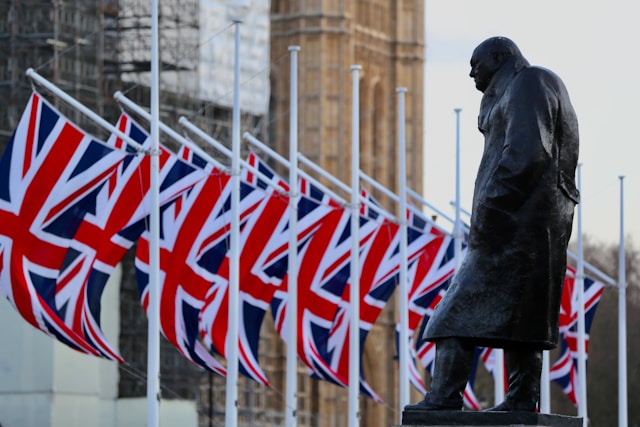The Digital Markets, competition and Consumer Bill (DMCC) empowers regulators to penalize non-compliant tech giants with fines of up to 10% of their global revenue
The United Kingdom has taken decisive steps to hold big tech accountable by passing the Digital Markets, Competition and Consumer Bill (DMCC) through Parliament. This legislation grants regulators the authority to enforce rules aimed at fostering competition in digital markets without judicial oversight, potentially subjecting tech companies to substantial fines for non-compliance.
In addition to addressing competition concerns, the DMCC tackles consumer protection issues by prohibiting fake reviews, enhancing transparency in subscription contracts, regulating secondary ticket sales, and eliminating hidden fees. Furthermore, it mandates certain companies to report mergers to the UK’s Competition and Markets Authority (CMA).
Embed from Getty ImagesSimilar to the European Union’s Digital Markets Act (DMA), the DMCC targets companies designated by the CMA as having Strategic Market Status (SMS), characterized by significant market power and strategic importance. These SMS firms must meet specific criteria, including global revenue exceeding £25 billion or UK revenue surpassing £1 billion.
Under the DMCC, the CMA is empowered to investigate potential violations, enforce compliance, and levy fines, all without resorting to the court system. Tech giants found in breach of the new regulations could face penalties of up to 10% of their total global revenue.
While resembling the DMA in its objectives, the DMCC offers a more tailored approach to regulatory requirements, ensuring that SMS firms adhere to specific mandates. Companies like Apple, Google, Meta, and Amazon, often referred to as digital “gatekeepers,” will be subject to these provisions.
The passing of the DMCC has garnered support from entities like Spotify and Epic Games, which have long advocated for government intervention to address concerns such as app store fees imposed by dominant platforms like Apple. Spotify’s CEO Daniel Ek emphasized the importance of holding Apple accountable under the new UK law, stating, “The DMCC has the potential to unlock real competition and growth, and Apple must be held accountable in the UK because we cannot miss the opportunity to get it right.”
Apple’s response to regulatory scrutiny, including that of the DMA, has drawn criticism, prompting investigations by authorities to assess compliance with new regulations in the European Union.
Analysis:
Regulatory Authority:
The DMCC represents a significant expansion of regulatory authority, empowering the CMA to independently investigate and penalize tech companies for anti-competitive behavior. By bypassing the court system, regulators can swiftly address violations, enhancing enforcement efficiency.
Consumer Protection Measures:
In addition to promoting competition, the DMCC incorporates provisions aimed at safeguarding consumer interests, such as combating fake reviews and enhancing transparency in subscription agreements. These measures reflect a comprehensive approach to addressing market distortions and protecting consumer rights.
Impact on Tech Giants:
Tech giants designated as SMS firms will face heightened scrutiny and regulatory obligations, including compliance with specific mandates outlined in the DMCC. This regulatory framework aims to level the playing field and foster innovation by curbing monopolistic practices and promoting fair competition.
Global Implications:
The enactment of the DMCC underscores the growing global momentum to regulate big tech and address concerns related to market dominance and consumer welfare. Similar initiatives in the European Union and other jurisdictions highlight the need for coordinated regulatory efforts to address digital market challenges effectively.
